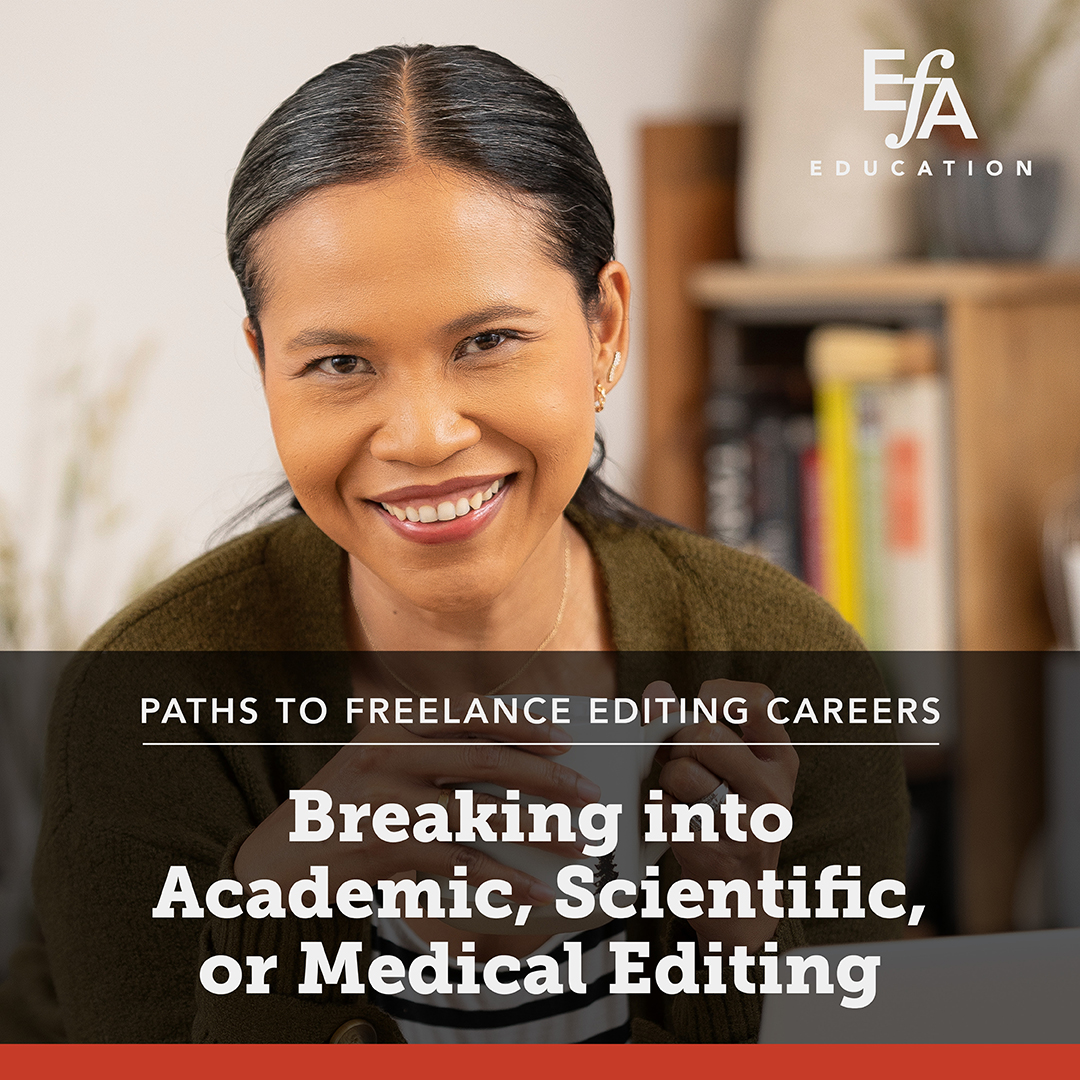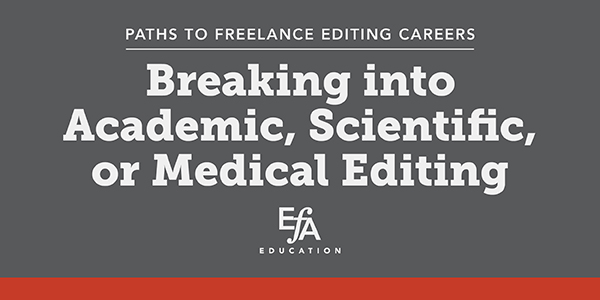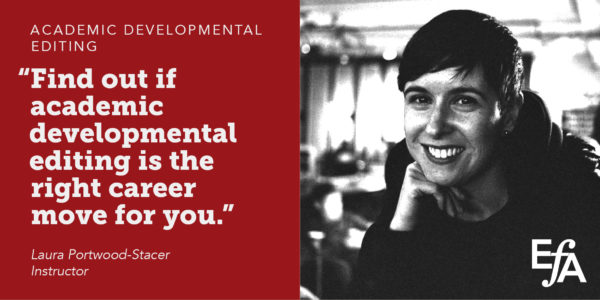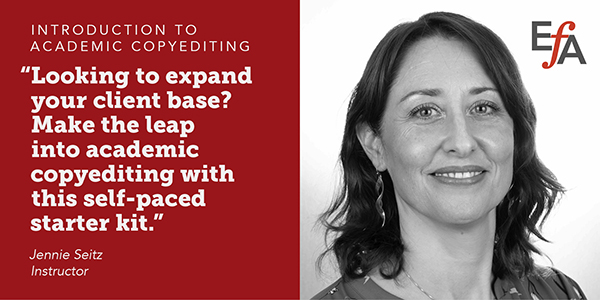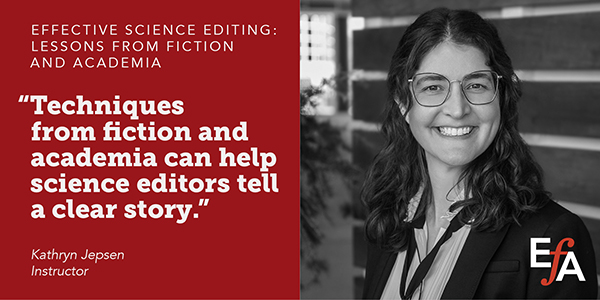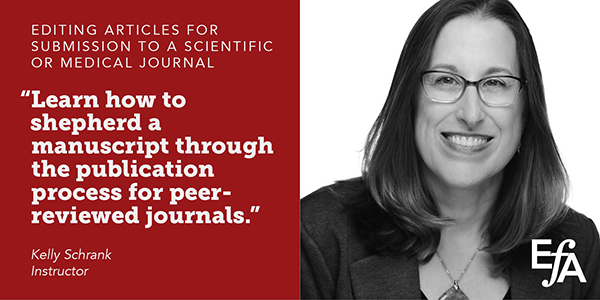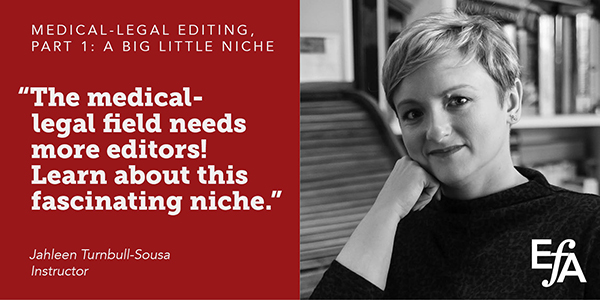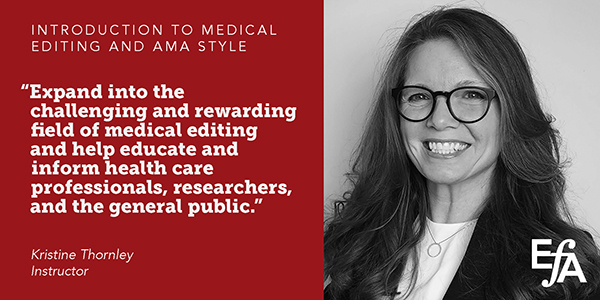Description
Academic Developmental Editing
This webinar is designed to offer an overview of the work of academic developmental editing. It is aimed at two main audiences: current freelance editors who are looking to branch into developmental editing for academic clients and those who may be new to freelance editing but have some experience working with academic manuscripts. The webinar covers the structure and process of academic publishing for both journal articles and books, including acquisitions, peer review, and the role of the freelance developmental editor in the publishing process.
Launching August 28: Introduction to Academic Copyediting
Academic copyeditors play a pivotal role in the precise dissemination of scientific research, bridging the gap between complex findings and their intended audience, whether fellow scholars or the wider community. This eight-module self-paced course is a comprehensive introduction to academic copyediting and the skills necessary to become an effective editor in the academic field. Find out how you can get started in this challenging and rewarding field and discover the pathway to a fulfilling and potentially lucrative career.
Introduction to Coaching Academic Writers
This webinar, geared toward academic editors at any level of experience, will introduce you to coaching academic writers. Whether you’re hoping to offer this as your primary service or adding it to your repertoire, you will learn some ways that coaching differs from editing, different needs academic writers bring to coaching, three basic skills coaches use, and how to start honing those skills. At the end of this workshop, you can start practicing these skills with clients right away.
Launching September 25: Coaching Academic Writers
Picking up where “Introduction to Coaching Academic Writers” leaves off, this self-paced course is your opportunity to envision your own coaching practice and further develop your listening and guiding capabilities. You’ll learn to apply these skills in four focus areas, give written feedback, set ethical boundaries, and run your coaching business. A variety of exercises will prompt you to practice your skills, reflect on your values and strengths, and develop your knowledge and confidence.
Live webinar, August 22: Effective Science Editing: Lessons from Fiction and Academia
Science writing doesn’t have to be dry and boring. Lessons from fiction editing and academic editing can help you keep the reader engaged, reaching both your audience and your goals. In this 90-minute webinar, you’ll learn how to ensure a piece of science writing hooks a reader’s attention in the beginning, holds the reader’s attention while conveying important information in the middle, and rewards the reader’s attention by delivering on promises in the end. We’ll also talk about best practices for ordering information at the sentence, paragraph, and overall structural level.
Editing Articles for Submission to a Scientific or Medical Journal
This session explains how to use a manuscript editing checklist (provided as a personalizable handout), which allows the editor to take a systematic approach to editing a manuscript. It will also provide tips for gathering author instructions, learning what to look for in each section of a manuscript, creating a mock submission to gather other necessary information, and submitting the final manuscript to the journal. Even editors familiar with preparing manuscripts for scientific or medical journals may learn some new tricks, and those new to editing these types of documents and helping authors get through the publishing process will get an essential primer.
Introduction to Medical-Legal Editing: A Big Little Niche
A medical-legal report is a document written by a medical expert that is used in a legal context, such as a medical malpractice or personal injury case. Medical-legal report editing is a little-known niche that offers a sizable source of potential work for editors and proofreaders with experience or interest in editing medical content. This webinar will introduce editors to the medical-legal field and explain what’s involved in providing quality assurance of reports for medical expert witnesses. The work in this big little niche is fascinating, rewarding, and abundant. If you have a deep interest in health and medicine and a love for fact-checking, you may want to make medical-legal editing your new specialism!
Introduction to Medical Editing and AMA Style
This 12-module self-paced course, designed for editors with intermediate-level copyediting knowledge, will build on those skills and introduce you to the world of medical editing. Medical editing is a specialty that requires additional knowledge and training above and beyond conventional copyediting. This includes medical knowledge, such as medical terminology and basic medical and health concepts, as well as knowledge about basic statistics, proper presentation of data in tables and figures, and citing resources. Medical editing also has its own style guide, The AMA Manual of Style: A Guide for Authors and Editors, 11th edition, which sets the standards for writing, citing, and publishing in the medical field. This course will introduce you to medical editing, following AMA style and best practices in the field.

